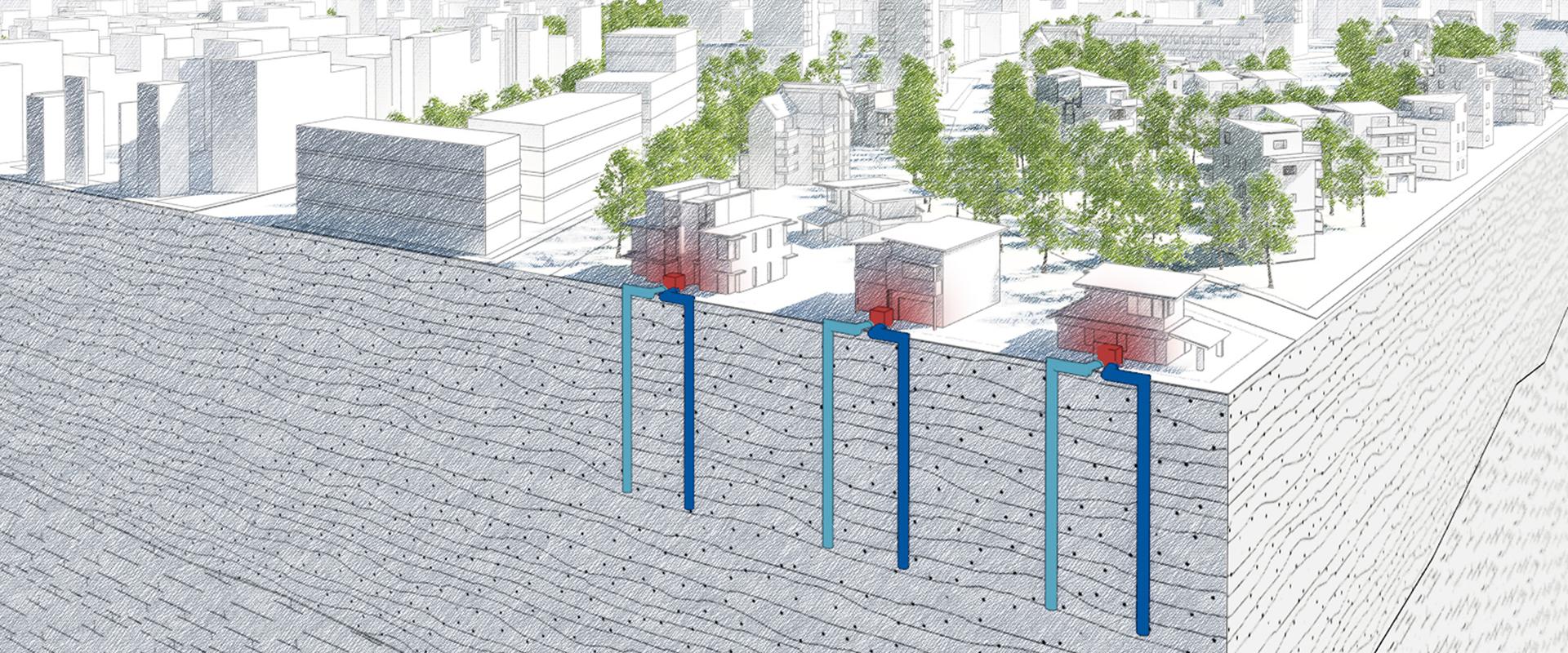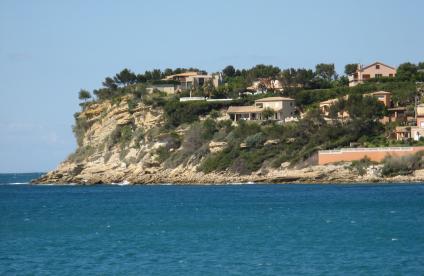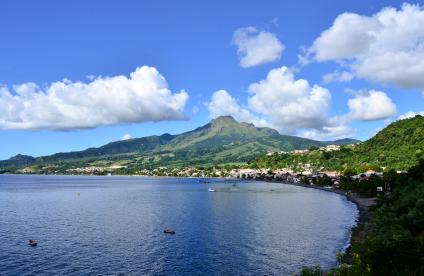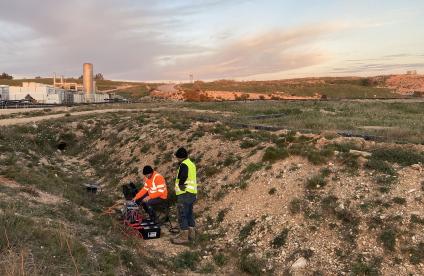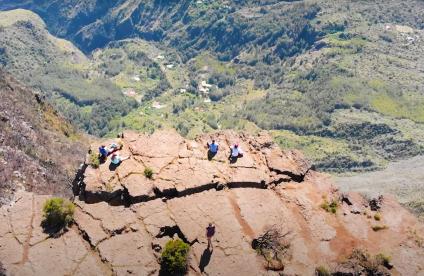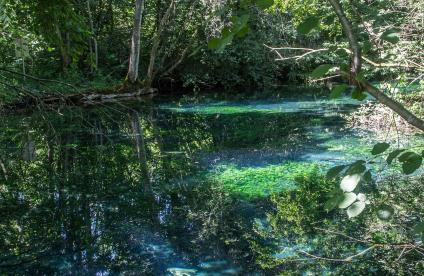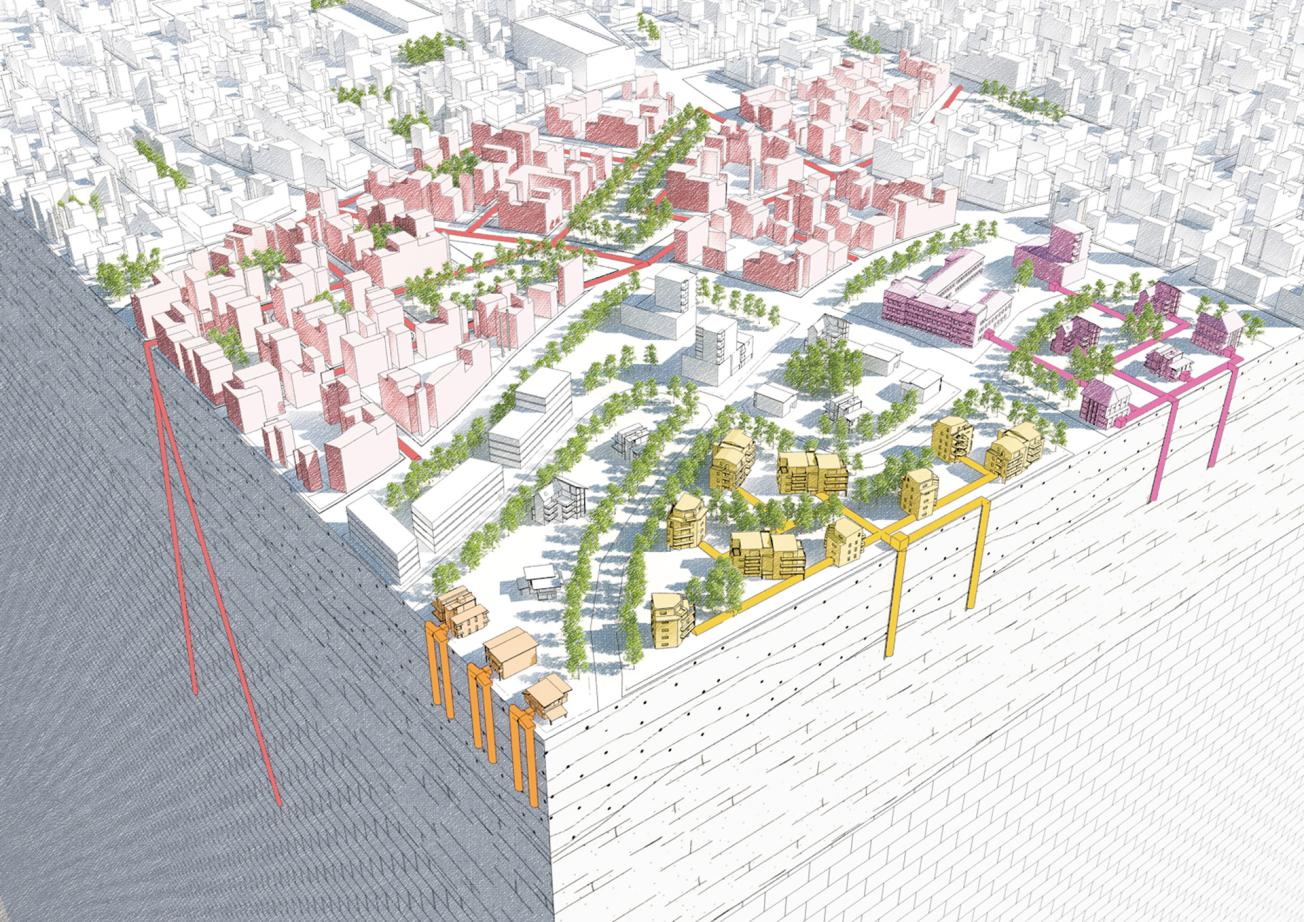
A "discussion diagram" used for planning eco-neighbourhoods and showing potential points of entry for geothermal heat (2011).
© BRGM
Towards low-carbon heating and cooling
The heating and air-conditioning sector accounts for half of all final energy use in Europe and can therefore act as a powerful lever in the transition to a carbon-free economy. Because fossil fuels still cover a large share of energy demand, a transition is needed towards low-emission sources of heat, such as geothermal energy, biomass, solar power and use of residual heat.
Heat storage has a key contribution to make as it provides the flexibility required to manage variations in heat demand and supply. Underground storage can absorb far larger quantities of heat than surface storage, potentially lowering the costs of storing large amounts of heat and reducing the land areas required.
The HeatStore project: a boost for the energy transition
HeatStore is one of the nine projects conducted under the European ERANET GEOTHERMICA programme, which is working to accelerate geothermal energy deployment.
The main goals of the HeatStore project are to reduce costs and risks, improve the performance of high-temperature underground heat storage technology (~25°C à ~90°C) and optimise the management of demand from heat distribution networks. The project partners have set a target reduction in heat production costs of at least 20%.
The HeatStore project is based on a network of six demonstrators, in The Netherlands, Belgium, Germany, France and Switzerland, and on 8 case studies of existing systems with different configurations in terms of heat sources, heat storage and uses of the heat produced.
This €16 million project involves 23 partners from nine countries, including the BRGM, and is coordinated by TNO (Netherlands). The consortium members are scientific research institutes and private companies. The two French partners (Storengy and the BRGM) are funded via the "Investing for the Future" programme managed by the ADEME.
The BRGM's contributions to HeatStore
As an expert organisation in the fields of geothermal energy and underground storage, the BRGM is contributing to the HeatStore project in several ways:
- Participation in benchmarking of the different numerical codes developed by the project partners against data acquired through the demonstrators.
- Application of probabilistic and possibilistic approaches in handling uncertainties in the development and operation of underground thermal energy storage (UTES) facilities.
- A study of underground heat storage potential on the scale of a region, by cross-analysing geological data, modelling results produced during the project and existing data on surface terrain (e.g. development of heat distribution networks).

